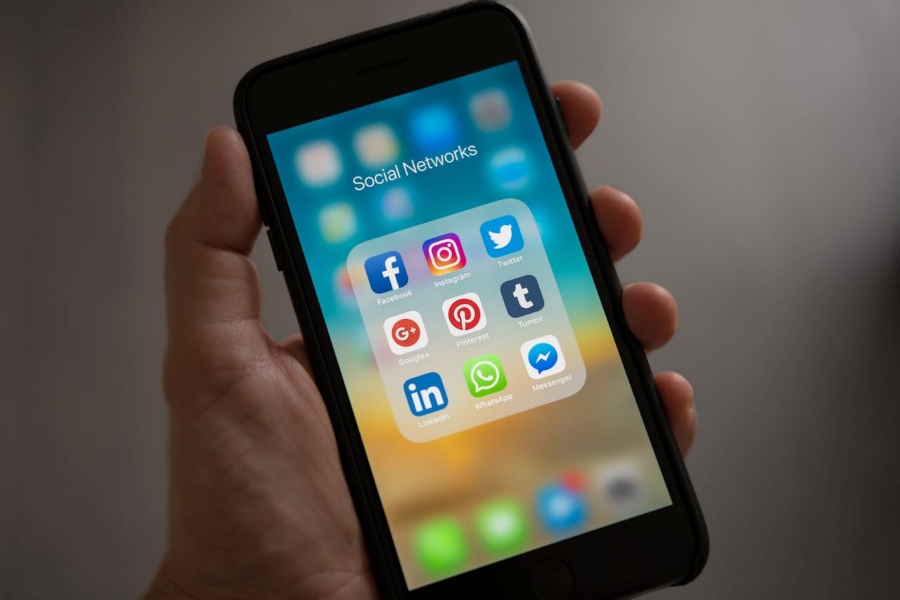- Artificial Intelligence and machine learning have changed the social media dynamic in many ways.
- Social media platforms can provide a more personalized experience for users thanks to this technology.
- By using more sophisticated ML algorithms chatbots can better understand context, allowing the customer service team to focus on more important issues.
- Some of the most important changes from machine learning have created a more personalized and efficient customer experience.
Artificial Intelligence and machine learning have changed the social media dynamic in many ways. With such a large amount of data, social media platforms need to find a way to use this information in their favor effectively. Most social media channels disrupted by others were forgotten by people because they no longer improved the digital experience. AI and machine learning not only automate processes in social media; they also create a more personalized experience.
When we think about machine learning and AI, we usually think they are some kind of unknown and futuristic trends, but they are actually here already. Social media marketing needs to evolve with current tech trends, and machine learning helps marketers improve their performance. Here’s how ML is changing social media marketing:
What is machine learning?
ML is a sub-discipline of AI which consists of providing computers the ability to improve and learn from experience without being explicitly programmed to do so. Machine learning algorithms filter and analyze data to find meaningful information as well. This technology is widely used in statistics and Data Science.
How has machine learning changed social media?
Machine learning has changed many industries, from healthcare to education. Social media marketing has been directly influenced by ML as well. Social media platforms didn’t use machine learning algorithms in the past, but now they can provide a more personalized experience for users thanks to this technology.
Have you ever wondered why TikTok’s recommendation engine is so accurate even when you don’t type anything you like? It’s because of machine learning. This technology learns from users’ behavior to accurately recommend items they’d be interested in.
On the other hand, ML and AI help social media monitor “hate speech” and any kind of information that puts others at risk. The same dynamic is also used for advertising. Today, social media ads are more efficient than ever because the platforms show them to the right audience.
These are some of the ways that social media has been influenced by machine learning. But what can we expect from this technology in the future?
Speaking a universal language
Something that usually happens is that brands have a diversified audience. Not everybody speaks the same language, and this makes it difficult for them to send their message efficiently. But what if you could send a message that automatically translates itself depending on the user’s language? You wouldn’t have to do anything, just post it in your native language as you regularly would.
This is something that will improve communication worldwide. Although Facebook has been trying to implement this trend, the algorithms used for this feature aren’t that sophisticated. Facebook is still not able to understand the context of the messages, which results in inadequate translation. However, deep learning translation (an evolution form of ML) promises to provide more accurate translations.
Better data processing
Have you ever thought about the number of devices that are connected to the Internet? These statistics show that by 2025 the number of IoT devices will go from 15 billion to 75 billion. Most of these IoT devices are expected to work with social media as well. According to Irish Tech News, most IoT devices will work with social media because adding a social feature will engage users to utilize the product.
Therefore, with such a large number of users connected to social media, the need for better data processing will increase. And this is where machine learning comes in. By implementing ML, social media channels will improve data processing as well.
Automatically interpret messages
Chatbots revolutionized customer service by providing automation. Before chatbots, the customer service team would have to spend too much time answering customers’ queries. This is a tedious activity that requires a lot of repetitive and redundant tasks. Chatbots automated this process and provided a more optimized experience for customers. Chatbots are available for them 24/7.
However, chatbots aren’t as efficient as they should because they’re not able to interpret messages. They just identify certain queries and come up with a predetermined answer. Yet, this could change in a couple of years.
By using more sophisticated ML algorithms chatbots could be able to interpret messages and understand the context. This way, the customer service team could spend more time on other relevant tasks and customers would be satisfied.
Social listening
In order to provide better services, companies need to know what customers are saying about them. But it’s usually very hard to track every single comment from customers. Social listening is a social media management tool that companies use to identify customer feedback and mentions of the companies in every single social media platform.
Sometimes, social listening tools also include review pages and other websites’ mention. Machine learning can improve social media monitoring in the future, so these tools are not only able to identify names and mentions but also logos. On top of that, with machine learning companies can also identify mentions of their brand in videos.
With the rapid increase of online data, it gets harder and harder to collect information like mentions or customer feedback. Machine learning will provide better data extraction by filtering information more efficiently.
Conclusion
Machine learning is a powerful trend that’s shaping the future, not only for digital marketing, but also for other industries like healthcare or animation. It has drastically changed social media management over the years and it’ll continue to drive change in this sector.
Some of the most important changes from machine learning have created a more personalized and efficient customer experience. ML has improved advertising, social media analysis, and automation. In the future, we can expect changes like automated translations, improved social media monitoring, and better data processing.




